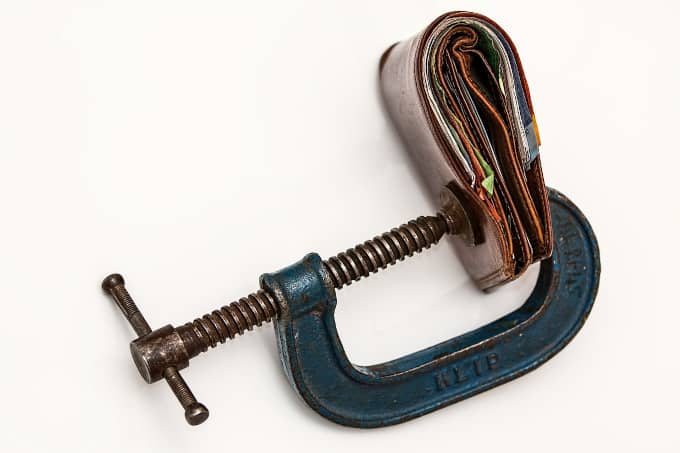Are you looking for ways on how to survive the recession? You will find this article useful in your desire to become financially stable despite the disasters that have come across your path. Read on to find out.
Table of Contents
Introduction
I was looking for tips on how to survive the recession as part of my strategy to keep my finances afloat in these difficult times. I share them here with all those who experience the same concern after the devastation imposed by the pandemic, specifically the COVID-19 and the ongoing war between Ukraine and Russia which affected people worldwide.
While I could see tourism picking up in my place, these developments appear to be mainly towards a moderate recovery and not a substantial one. We still need to see significant growth to regain the pre-pandemic state of economic activity. With El Nino looming in the next few months and the increasingly noticeable effects of climate change, recession is likely to manifest itself. We need to be ready to increase our resilience amidst these disasters that significantly affect our lives.
In the beginning of this article, I will explain first the meaning of recession. Understanding what this phenomenon is can help you better cope with what’s in store at its wake.
Afterwards, I will enumerate ways by which you can adapt based on the information I have gathered on the internet. I use this strategy to inform myself as well as share to my audience what I personally know to have worked and supplement it with the pool of useful information found online. I learn and share what I learn. It benefits both me and my readers.
Now let’s understand what is recession and how it affects us.
Understanding Recession and How It Affects You
The term “recession” refers to a period of economic decline characterized by a decrease in gross domestic product (GDP), rising unemployment rates, and a general slowdown in economic activity. Recession can be caused by various factors such as a financial crisis, inflation, or a significant drop in consumer spending.
During a recession, many people experience financial difficulties such as job loss, reduced income, and increased debt. The effects of a recession can be felt across all sectors of the economy, from small businesses to large corporations.

It’s important to understand how a recession affects you personally so that you can take steps to protect yourself financially.
For example, if you’re employed, you may need to prepare for the possibility of a layoff or reduced hours. If you’re a business owner, you may need to adjust your operations to stay afloat during tough times.
By understanding the causes and effects of a recession, you can make informed decisions about your finances and take proactive steps to weather economic challenges.
I discuss three ways on how to survive the recession in the next sections.
Three Ways on How to Survive the Recession
1. Create a Budget
In times of economic uncertainty, it’s important to take a closer look at your personal finances and find ways to stretch your money further. One of the most effective ways to do this is through budgeting. By creating a budget, you can gain a better understanding of where your money is going and identify areas where you can cut back.
Start by tracking your expenses for a month or two. This will give you a clear picture of your spending habits and help you identify any unnecessary expenses.
Once you have a good idea of where your money is going, create a budget that prioritizes your essential expenses, such as housing, food, and transportation.
To stretch your money even further, consider cutting back on non-essential expenses like dining out, entertainment, and shopping. Look for ways to save on your essential expenses as well, such as carpooling or using public transportation instead of driving alone.
Another effective budgeting strategy is to set financial goals for yourself. Whether it’s paying off debt, saving for a down payment on a house, or building an emergency fund, having a specific goal in mind can help you stay motivated and focused on your budget.
Remember, budgeting is all about finding a balance between your income and expenses. It may take some time and effort to get it right, but with patience and persistence, you can stretch your money further and weather the challenges of a recession.
2. Supplement Your Income
During tough economic times, finding ways to supplement your income can be crucial for making ends meet. One option is to consider taking on a part-time job or freelance work in addition to your full-time job. This can provide an extra source of income that can help cover expenses and reduce financial stress.
Another option is to sell items you no longer need or use. This could include clothing, electronics, furniture, or other household items. You can sell these items online through websites such as eBay, Craigslist, or Facebook Marketplace. Alternatively, you could hold a garage sale or sell items at a local flea market.
If you have a skill or talent, consider monetizing it. For example, if you are good at photography, you could offer your services for events or sell your photos online. If you are skilled in writing, you could offer freelance writing services or start a blog and earn money through advertising or affiliate marketing.
Finally, consider renting out a spare room in your home through platforms like Airbnb. This can provide a steady stream of passive income while also allowing you to meet new people and potentially make new friends.
Overall, there are many ways to supplement your income during tough economic times. By being creative and resourceful, you can find opportunities to earn extra money and improve your financial situation.
3. Stay Positive and Focused on Your Goals Despite Economic Challenges
In times of economic uncertainty, it’s easy to become overwhelmed and discouraged. However, it’s important to stay positive and focused on your goals despite the challenges you may face.
Here are some practical tips for staying motivated during tough times:
Firstly, try to maintain a positive attitude. This may seem easier said than done, but it’s crucial to remember that your mindset can greatly impact your ability to overcome obstacles. Surround yourself with positive people and seek out sources of inspiration and motivation.
Secondly, set realistic goals for yourself. It’s important to have something to work towards, even if it’s small. Break down larger goals into smaller, more manageable tasks and celebrate each accomplishment along the way.
Thirdly, don’t be afraid to ask for help. Whether it’s seeking advice from a mentor or reaching out to a support group, there are resources available to help you navigate through tough times.
Lastly, remember to take care of yourself both physically and mentally. Exercise, eat well, and make time for activities that bring you joy and relaxation. Taking care of yourself will help you stay energized and focused on your goals.
By staying positive and focused on your goals, you can weather any economic challenge that comes your way. Remember, tough times don’t last, but tough people do.
I hope these tips on how to survive the recession would help you survive the recession. The bottom line is that there is no limit to what we can do to be more productive. Recession is a time for us to harness our hidden potentials that can help propel us forward towards financial independence.



